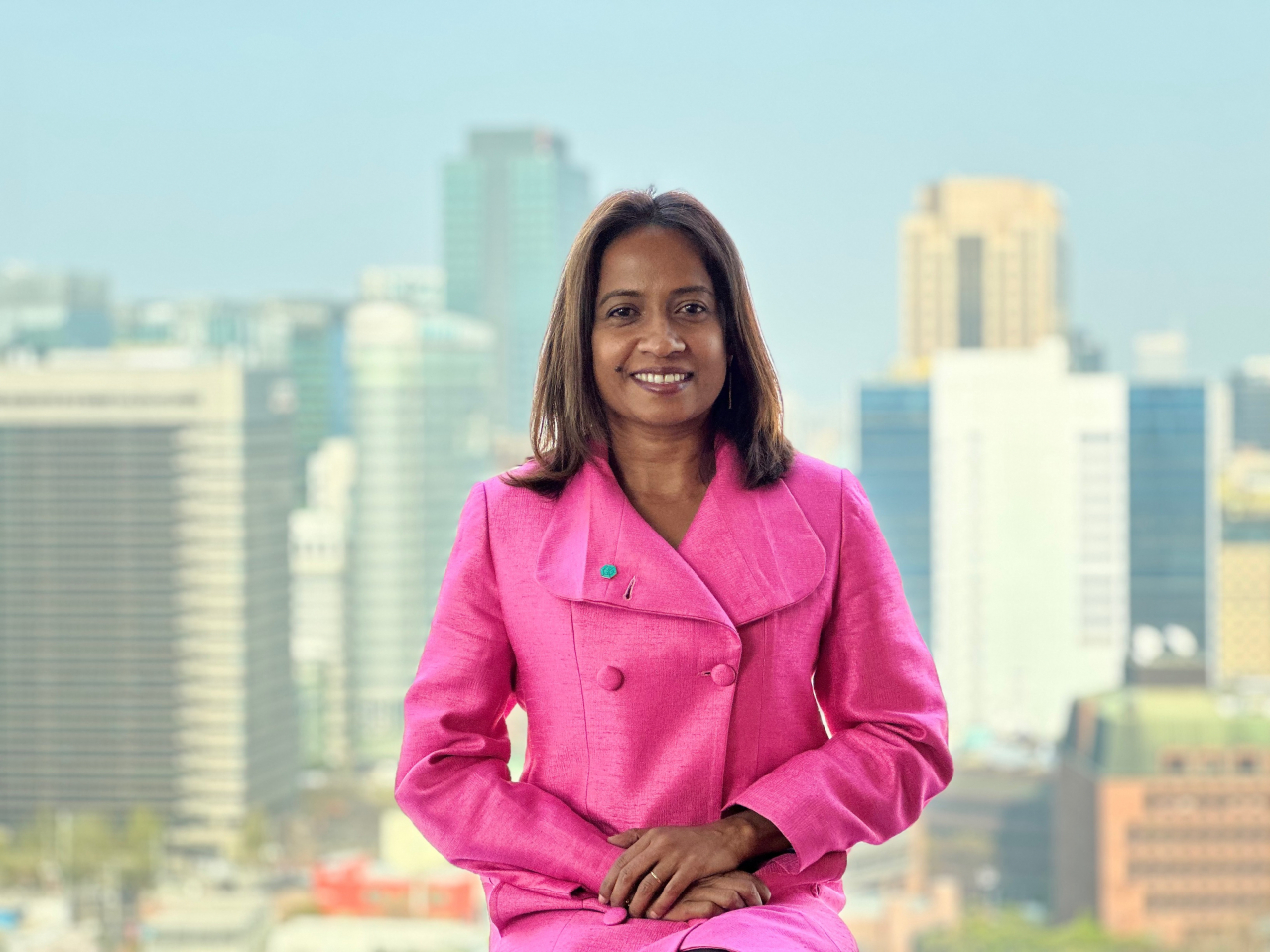[Contribution] Realign climate action for just transition
By Korea HeraldPublished : Nov. 23, 2023 - 23:23

When the Paris Agreement was adopted in 2015, I was overjoyed.
Years of hard work, sleepless nights, and lengthy negotiations were finally behind us. Commitments to keep global warming below 1.5 degrees Celsius seemed to be a “reality."
There was consensus for a multilateral, legally binding treaty, and my support as a legal adviser to the least developed countries on Paris Agreement negotiations was to benefit so many. Yet my joy was short-lived.
Despite scientific knowledge of what the world needs to survive, we are not moving fast enough to keep temperatures below the 1.5-degree target. The world’s dependence on coal has grown in many countries, and the renewable energy share in electricity generation is still very low. Investment in the low-carbon transition and technological innovation is slow.
In the meantime, many countries, communities and ecosystems are facing irreparable climate impacts. Economic and non-economic loss and damage related to climate impacts are increasing daily and -- they are real.
UNFCCC COP28 marks an important milestone with the completion of the first-ever Global Stocktake (GST) of climate actions. The world does not need to wait for the GST to recognize the significant gap between current progress and the desired trajectory.
Mounting evidence suggests that most countries are falling short of fulfilling their climate commitments. Without immediate serious emissions cuts and scaled-up finance to respond to these impacts, more people will be pushed into extreme inequality and poverty.
However, as the IPCC and other assessments explain, when carried out in a just manner, significant climate actions are not only possible but also desirable for inclusive, resilient, and sustainable economic growth.
My proposal is for the UN to establish a global just transition framework. The UN has a role to play as convenor and provider of a level playing field for all countries involved; as a global advocate and norm-setter on crucial issues; and as a facilitator of funding and financial mechanisms’ and as a facilitator of collaboration with governments, businesses, and civil society. With such a significant global role, the UN should take the responsibility to establish a global just transition framework with two key priority areas in mind: increasing the ambition to achieve the 1.5 C target and addressing loss and damage due to climate impacts.
First, the UN secretary-general should call for a global just transition framework to help countries increase their ambitions to achieve the 1.5 C target. The framework should help countries to effectively implement and be accountable for their NDCs through a new global program.
This new program could help countries improve the quality of their NDCs, secure sufficient funding, attract investments and overcome practical obstacles to implementation.
Such a framework could include guidelines focusing on people and ecosystems, including social protection measures to protect society and promote gender justice. The framework could also protect those who lose jobs, introduce approaches to provide education and skills and introduce opportunities to develop new employment niches.
The UNSG-led global-level discussions with heads of state should focus on better governance, unlocking investment potential, encouraging technological innovation and setting up necessary funding, such as what has been committed for just energy transition for Vietnam, Indonesia, and South Africa.
Transition support is essential to create an enabling environment. Overall, the work of UNSG should focus on a speedier, just global transition.
Second, the UN should frame the whole climate crisis around loss and damage and address the matter within the global just transition framework. Loss and damage are the adverse short-term and long-term economic and non-economic climate change impacts, that are failure of lack of sufficient mitigation efforts and beyond the scope of adaptation.
As such, reducing greenhouse gas emissions (mitigation) should be about averting further climate-induced loss and damage. Adaptation should be about minimizing Loss and Damage and building long-term resilience. The whole discussion should also be about practically addressing both economic and non-economic Loss and Damage once they occur.
It is crucial to prioritize action, governance, and support for this matter. Amplifying the need for international collaborative efforts, fostering regional cooperation and solidarity for the "Global South" and diversifying funding sources for effectively addressing loss and damage.
The UAE, as the upcoming holders of the COP presidency, should champion this matter and commit funding for loss and damage as part of their COP legacy. Furthermore, the Green Climate Fund and the Global Environment Facility managed funds such as the Adaptation Fund and the Least Developed Countries Fund should be made fit for the purpose of addressing loss and damage.
A decision at the COP28 inviting IPCC to produce a special report on loss and damage to inform and provide a synthesized evidence base for future decisions on loss and damage should be considered. UNSG could appoint a special envoy to coordinate loss and damage-related discussions in the UNFCCC, UNOHRLLS and other processes.
Transitioning to net zero should not be just a technical and financial matter -- it must be about people, because at the heart of sustainability are the lives, well-being, and aspirations of individuals and communities. The transition should be a collective endeavor, driven by the strong principle that green growth is not just about reducing emissions, but about improving the quality of life for all, leaving no one behind.
COP28 is an opportunity to emphasize this narrative and bring both ambition and resilience into one global just transition framework.
Achala Abeysinghe is the director and head of programs for Asia at the Global Green Growth Institute in Seoul. The views expressed in this article are her own. -- Ed.
-
Articles by Korea Herald



















